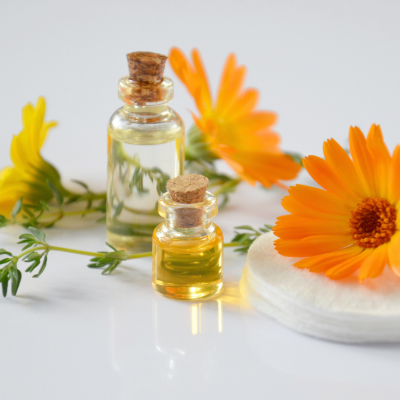Discover the power of menopause essential oils: Natural relief and wellness. Learn how essential oils can ease menopausal symptoms and promote overall well-being. Dive into the world of menopause and essential oils today!
Menopause is a natural phase in a woman’s life. Still, it often comes with many uncomfortable symptoms, such as hot flashes, mood swings, sleep disturbances, etc. An increasingly popular approach to alleviating these symptoms is using essential oils.
This article will explore how essential oils can be valuable allies in relieving menopausal symptoms. We’ll discover how these natural oils can help balance hormones, reduce stress, and enhance overall well-being during this transitional phase in a woman’s life.
Understanding menopause
To comprehend how essential oils can benefit women in menopause, it’s essential first to understand what’s happening in their bodies.
Menopause is a natural process that marks the end of menstruation and reproductive capacity. The central feature of menopause is the decline in estrogen and progesterone levels, leading to various symptoms.
However, women don’t have to face these uncomfortable symptoms alone. Essential oils, with their therapeutic properties, can be an effective solution.
Essential oils for hot flashes
Hot flashes are one of the most notorious symptoms of menopause. For many women, they can be highly uncomfortable and even debilitating.
You can use essential oils like clary sage and peppermint to reduce the frequency and intensity of hot flashes.
Clary sage is known for its hormone-regulating effect, helping to stabilize the hormonal fluctuations that trigger hot flashes. Peppermint, however, has refreshing properties and can be applied topically for immediate relief when a hot flash strikes.
Hormone Balance with Geranium
Hormonal balance is critical during menopause. Hormonal fluctuations can lead to mood swings, insomnia, and other challenging symptoms.
Geranium essential oil is a valuable ally when it comes to balancing hormones. This oil regulates estrogen production, helping alleviate emotional symptoms associated with menopause, such as irritability. Additionally, geranium has a pleasant aroma that can uplift one’s mood.
Stress Reduction with Lavender
Stress can exacerbate menopausal symptoms, so adopting stress management practices is crucial for overall well-being. Lavender is a well-known essential oil with relaxing properties.
Applying lavender oil topically or utilizing it in aromatherapy can help reduce stress, improve sleep, and alleviate anxiety during menopause. Quality sleep is crucial for hormonal balance and symptom reduction.
Essential Oils to Improve Sleep
Insomnia and sleep disturbances are common during menopause. Lack of sleep can exacerbate other symptoms, such as fatigue and irritability.
Essential oils like Roman chamomile and vetiver have soothing properties that enhance sleep quality. Roman chamomile is renowned for its relaxing qualities and can be used in a diffuser before bedtime. Vetiver, with its earthy and calming scent, helps calm the mind and promote restful sleep.
Using essential oils during menopause
To maximize the therapeutic benefits of essential oils in relieving menopausal symptoms, try one of these methods.
1. Topical Application: This approach involves diluting the essential oil with a carrier oil, like coconut or jojoba oil. Once diluted, gently massage the mixture onto your skin.
This method can be particularly effective for relieving sudden hot flashes or facial flushing. It allows the essential oils to be absorbed through your skin, offering therapeutic benefits.
2. Aromatherapy: Aromatherapy involves inhaling the essential oils, which can be done using a diffuser or simply by smelling the aroma directly from the essential oil bottle. Aromatherapy is beneficial for calming stress, enhancing mood, and promoting hormonal balance. The inhalation of these oils can have a soothing and balancing effect on your well-being during menopause.
It’s crucial to follow specific guidelines for dilution and dosage for each essential oil and, if needed, seek guidance from an aromatherapist or healthcare professional to ensure safe and effective use.
How to use essential oils and precautions
Essential oils during menopause can be an excellent natural remedy, but following some critical guidelines for safe and practical application is critical.
- When applying essential oils to your skin, it’s essential to dilute them properly in a carrier oil, such as coconut or jojoba. A commonly recommended dilution ratio is 2-3 drops of essential oil per teaspoon of carrier oil.
- Conduct a patch test before widespread application to check for any adverse reactions.
- When practising aromatherapy, ensure proper ventilation and use a high-quality diffuser.
- Adhere to recommended dosages and consult with an aromatherapist or healthcare professional if you have underlying health concerns or are pregnant.
Conclusion
Essential oils can effectively relieve menopausal symptoms, enhancing overall well-being during this transitional phase. Women seeking a natural approach to address the challenges of menopause can significantly benefit from incorporating essential oils into their daily routines.
Remember that the quality and source of essential oils are fundamental to ensure safe and effective results. Consulting a healthcare professional or aromatherapist can help select and use these oils correctly during menopause. With essential oils by your side, women can navigate this transition phase with greater comfort and balance.
Now that you’ve learned about the incredible benefits of essential oils in alleviating menopausal symptoms share this article with other women who can benefit from this information. Leave your comments below, sharing your experiences with essential oils during menopause. Together, we can support and empower more women to go through this transition phase with comfort and balance. Comment and share now!
References
- “Guida completa all’aromaterapia. Guarire con le essenze e i profumi”, Valerie A. Worwood 1 January 2008, Italy, Macro Edizioni.
- Medical News Today, “Aromatherapy: What You Need to Know”, Medically reviewed by Debra Rose Wilson, PhD, MSN, RN, IBCLC, AHN-BC, CHT, 20 March 2017, Written by Yvette Brazier Available at https://www.medicalnewstoday.com/articles/10884 (Accessed: 12 January 2020).
- Department of Environmental and Occupational Health, “The Effects of Evaporating Essential Oils on Indoor Air Quality”, on 2005. Available at: https://www.isiaq.org/docs/PDFs/2309.pdf (Accessed 16 January 2020).


